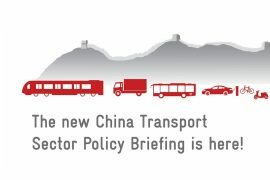How can firms like Mobike and Meituan reduce their environmental footprint while simultaneously advancing their business models? This was the central theme of the Beijing Cleantech Hackathon, held at Innoway, a start-up space in Zhongguancun, Beijing’s well-known science and technology park, on 20 and 21 October 2018. GIZ sponsored the 12-hour hackathon which was organized by The Beijing Energy Network (BEN) and New Energy Nexus.

The event brought together some of Beijing’s most talented students, professionals, developers, and entrepreneurs to come up with innovative solutions for tackling the wide array of sustainability challenges facing China today. The individual challenges were sponsored by Mobike and Meituan, two firms which have been instrumental in shaping the wider developments of China’s contemporary mobility and food-delivery sector. While Meituan’s Qingshan Foundation asked participants to develop solutions to promote the recycling of delivery waste at universities, Mobike challenged participants to come up with innovative solutions for improving the wider environmental footprint of shared bikes.
The participants had a period of twelve hours to construct well-reasoned solutions for the given challenges and to prepare their pitches. On day one, the participants received support from mentors in their preparations. Daniel Hsu, Vice President of Village Capital, gave an introduction on how to develop ideas that can feasibly improve a business model’s sustainability. With his key message being “start with the problem, not the solution”, he emphasized the importance of addressing a firm’s actual pain points. All too often, he argued, entrepreneurs make the mistake of developing sophisticated solutions or technologies that, while being creative and innovative, do not have a convincing or feasible underpinning business model. Andrew Chang from New Energy Nexus held a tutorial on how to deliver convincing and successful business pitches.

Sunday was game day. The time to present the eagerly-awaited pitches had come and the rooms in Innoway’s Innoplanet were packed by 9am. In addition to twelve groups of excited participants, several representatives from each sponsor were present. A panel of five judges decided on the competition’s winners which were to receive a cash prize of 6,000 RMB. Besides representatives from Meituan and Mobike, the jury was comprised of members of the financial community and international cooperation and development: Wu Fan, Executive Director at Cathay Capital, Peter Sailer, Project Director of the Sino-German Urbanization Partnership (SGUP) at Deutsche Gesellschaft für Internationale Zusammenarbeit (GIZ) GmbH; and Cao Qiyong, Consultant for the Asian Development Bank (ADB) decided on the winners together with Qin Hao, Senior Sustainability Expert at Mobike, and Guan Li, Senior Manager CSR at Meituan Maiwai.
The pitches ranged from creative VIP bike membership schemes and incentives to promote environmentally friendly user behaviour to ‘smart bins’ for delivery waste. The winner of the mobility challenge, ‘Billion Bicycle Ltd.’, proposed an inter-bike bluetooth connectivity solution to be able to more accurately check the parking positions and functional status of bicycles. The team contended that their solution could dramatically improve the sustainability of Mobike’s business model by reducing bicycle mistreatment and damage. Complementing the localization of bikes, they also suggested a simple reorientation of the brake protector outwards in order to prevent brakes from bending out of shape. The runner-up of the mobility challenge argued that by cooperating with event organizers, Mobike can boost the availability of bicycles for high-demand situations. Cyclists, they proposed, should be incentivized to park bikes at certain designated areas in order to provide for sufficient bicycle availability.

The winning team of the circular economy challenge proposed the combination of developing water and oil repellent food packaging with innovative back-end waste treatment to substantially reduce the environmental footprint of food packaging waste at Chinese universities. The runner up of the challenge proposed that Meituan’s sustainability could be substantially improved by reducing the unnecessary distribution of disposable utensils. The team argued that simple changes in Meituan’s delivery app, an opt-in button rather than an opt-out button for the inclusion of chopsticks in delivery, would dramatically reduce needless delivery waste.
Perhaps the message of the Beijing Cleantech Hackathon is best summarized by Peter Sailer, hackathon judge and project director of the Sino-German Urbanization Partnership, who concluded that “on the road to sustainability, it does not only need big ideas, but also small changes in our everyday life. The two winning teams have shown how small adjustments in business strategy could have the potential to create larger impacts on sustainability.”





Comments are closed.